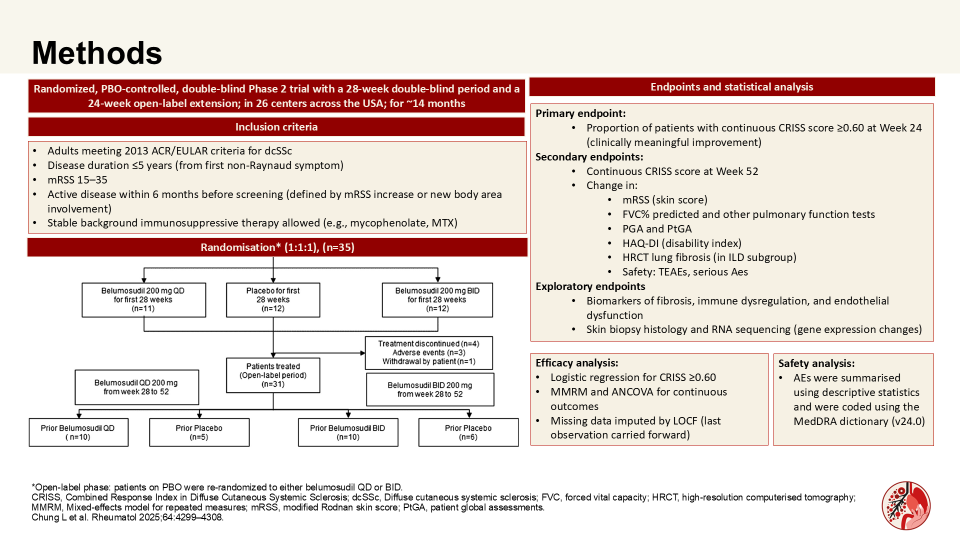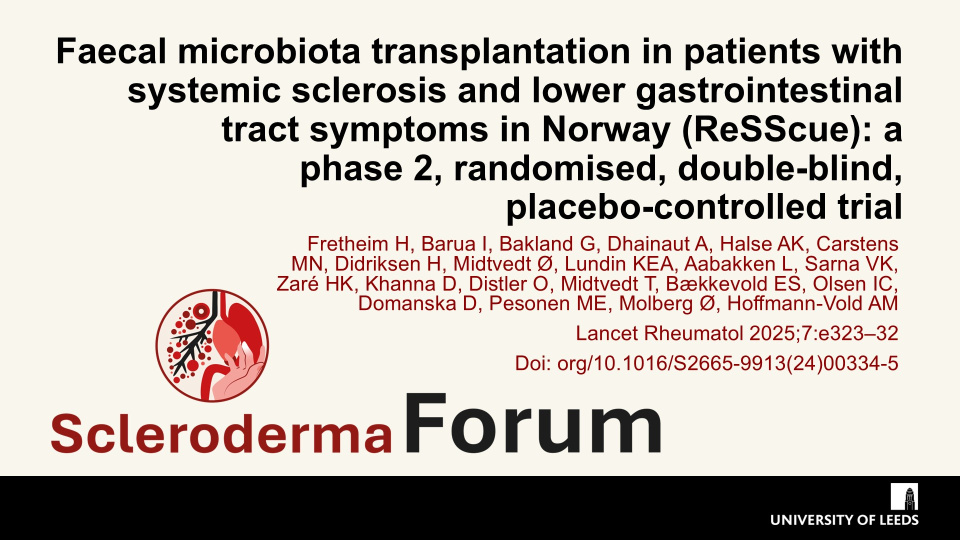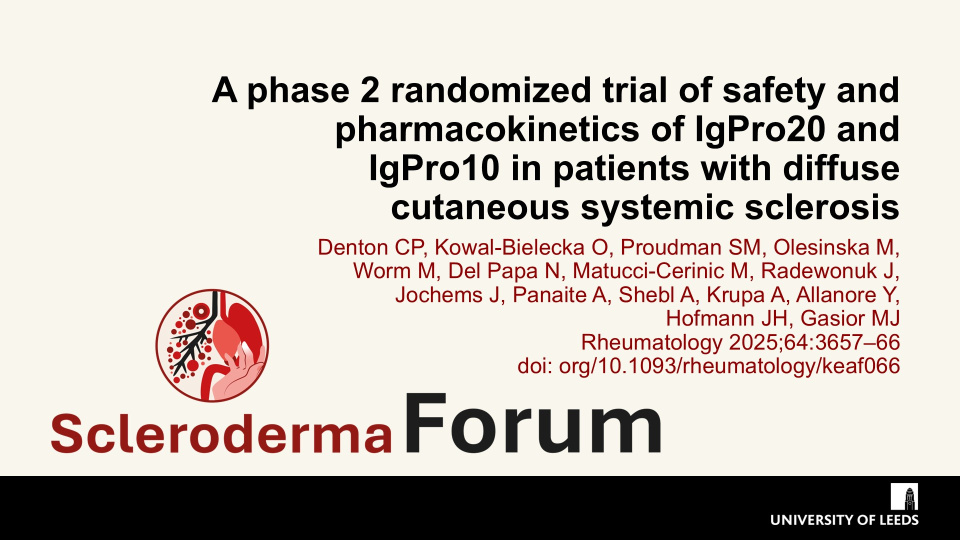Publications
Find coverage of the latest original articles on scleroderma, focusing on those with data on therapeutic interventions and those that have clinical impact.
Sponsored by Boehringer Ingelheim.
Belumosudil in diffuse cutaneous systemic sclerosis: A randomized, double-blind, open-label extension, placebo-controlled, Phase 2 study
Rheumatology 2025;64:4299–4308 Doi: 10.1093/rheumatology/keaf062
Chung et al. showed that this prematurely terminated Phase 2 trial did not identify any trend toward belumosudil efficacy as the combined response index in systemic sclerosis score (CRISS) ≥0.60 responses were similar between belumosudil and placebo groups; but it was found to have acceptable safety and tolerability. Authors evaluated the efficacy, safety and PD of orally administered belumosudil (200mg QD or BID) in patients with dcSSc.
Faecal microbiota transplantation in patients with systemic sclerosis and lower gastrointestinal tract symptoms in Norway (ReSScue): a phase 2, randomised, double-blind, placebo-controlled trial
Lancet Rheumatol 2025;7:e323–32 doi: org/10.1016/S2665-9913(24)00334-5
Fretheim et al. showed that the faecal microbiota transplantation with ACHIM was well-tolerated in participants with systemic sclerosis but did not result in an improvement in lower GIT symptoms. Fretheim et al. compared the effects of repeated upper intestinal infusions of ACHIM with placebo in patients with systemic sclerosis and moderate-to-severe lower GIT symptoms. The ReSScue trial provides valuable insights that can inform future GIT studies in patients with systemic sclerosis.
A phase 2 randomized trial of safety and pharmacokinetics of IgPro20 and IgPro10 in patients with diffuse cutaneous systemic sclerosis
Rheumatology 2025;64:3657–66 doi: org/10.1093/rheumatology/keaf066
Denton et al. showed that SC administration of immunoglobulin is generally well-tolerated in patients with dcSSc. Denton et al. evaluated the safety of IgPro20 in adults with dcSSc by recording of AEs, TEAEs, AE of special interests, ISRs and associated clinical tests. The secondary objectives were assessing PK and relative bioavailability of IgPro20, and the safety profile and PK of IgPro10. The ISR rate was low with no severe or serious TEAEs affecting the skin reported, despite moderate-to-severe skin involvement in all subjects and pathological skin features. Overall safety, PK and bioavailability profiles of IgPro20, and safety and PK of IgPro10 were similar to those observed in other indications.




